Respect for human dignity and due process from the practice of evidence based on neuroimaging in the colombian criminal process
Keywords:
Derechos humanos, debido proceso, dignidad humana, neurociencia, proceso penalAbstract
This article focuses on studying the influence of neuroscience in criminal evidence law where it could be given an important use to unravel the truth in the process, however, controversy arises around neuroimaging techniques because it is believed that these could violate the fundamental rights of those who are subjected to them. Therefore, we intend to analyze the practice of evidence based on neuroimaging without specifically violating the rights to due process and human dignity, conducting a study of the suitable means of evidence to make use of this novel science, the constitutional jurisprudence and the legal provisions in Law 906 of 2004, resulting in the viability of such evidence in the Colombian criminal process.
References
BEAR, Mark F.; CONNORS, Barry W. y PARADISO, Michael A. Neurociencia: La exploración del cerebro. Wolters Kluwer, 2016.
https://jabega.uma.es/discovery/fulldisplay/alma991005584439704986/34CBUA_UMA:VU1
BLOOM, Floyd, et al. Fundamental Neuroscience. Academic Press, 2008.
COLOMBIA. CONGRESO DE LA REPÚBLICA. Ley 906. (01, septiembre, 2004). Por la cual se expide el Código de Procedimiento Penal. Bogotá D.C. No. 45.658.
https://www.oas.org/juridico/spanish/mesicic2_col_Ley_906_2004.pdf
COLOMBIA. CORTE CONSTITUCIONAL. Sentencia T-1246/2008. Magistrado ponente: Dr. Humberto Antonio Sierra Porto. (11, diciembre, 2008).
https://www.corteconstitucional.gov.co/relatoria/2008/T-1246-08.htm
COLOMBIA. CORTE CONSTITUCIONAL. Sentencia T-291/2016. Magistrado ponente: Dr. Alberto Rojas RÃos. (02, junio, 2016).
COLOMBIA. CORTE CONSTITUCIONAL. Sentencia T-881/2002. Magistrado ponente: Dr. Eduardo Montealegre Lynett. (17, octubre, 2002).
COLOMBIA. CORTE SUPREMA DE JUSTICIA, SALA DE CASACIÓN PENAL. SP9792, Rad. 42307. Magistrada ponente: Dra. Patricia Salazar Cuellar. (29, julio, 2015).
CONSTITUCIÓN POLÃTICA DE COLOMBIA. (04, julio, 1991). Gaceta Constitucional No. 114.
DUQUE PARRA, Jorge Eduardo; BARCO RÃOS, John y PELÃEZ CORTÉS, Félix J. C. Santiago Felipe Ramón y Cajal, ¿Padre de la Neurociencia o Pionero de la Ciencia Neural? En: International Journal of Morphology. 2011. Vol. 29, No. 4. DOI: http://dx.doi.org/10.4067/S0717-95022011000400022
FILLER, A. The History, Development and Impact of Computed Imaging in Neurological Diagnosis and Neurosurgery: CT, MRI, and DTI. En: Nature Precedings. 2009. DOI: https://doi.org/10.1038/npre.2009.3267.5
GÓMEZ PAVAJEAU, Carlos Arturo y GUTIÉRREZ DE PIÑERES BOTERO, Carolina. Neurociencias y Derecho. Bogotá: Universidad Externado de Colombia, 2017.
GRANADOS PEÑA, Jaime Enrique. La prueba pericial y la prueba novel en el marco del nuevo proceso penal en Colombia. En: Revista Derecho Penal Contemporáneo. 2005. No. 11.
LUNA SALAS, Fernando. Pruebas neurocientÃficas y derechos humanos: estudio preliminar de las tensiones y controversias dentro de los procesos judiciales. En: Revista da Faculdade de direito da FMP. 2019. Vol. 14, No. 1. Obtenido de: https://www.revistas.fmp.edu.br/index.php/FMP-Revista/article/view/132/126
Luna Salas, Fernando. 2020. «Técnicas neurocientÃficas Como Medio De Prueba Pericial». Prolegómenos 22 (44):143-54. https://doi.org/10.18359/prole.4160.
MENDEZ, Juan. Bosquejo histórico de las Neurociencias. En: Biblioteca Virtual en Salud de Honduras. 2007. Obtenido de: http://www.bvs.hn/Honduras/SUN.THEPIXIE.NET/files/BUN_SYN_2007_2(1)B.pdf
MORA TERUEL, Francisco y SANGUINETTI, Ana MarÃa. Diccionario de Neurociencia. Madrid: Alianza, 2004. p. 172.
NIEUWENHUYS, Rudolf; VOOGD, Jan y VAN HUIJZEN, CHRISTIAAN. El sistema nervioso central humano. Madrid: Panamericana, 2009.
PARRA-BOLAÑOS, Nicolás. Impacto de las técnicas de neuroimagen en las ciencias sociales. En: Revista Chilena de NeuropsicologÃa. 2015. Vol. 10, No. 1.
RODRÃGUEZ SARMIENTO, Juan Pablo, et al. Práctica de pruebas neurocientÃficas en el proceso penal: Una visión desde el respeto a los principios de no autoincriminación e intimidad personal. En: Revista Ius Praxis. El Socorro: 2021. Vol. 5, No. 2. Obtenido de: https://revistas.unilibre.edu.co/index.php/lux_praxis/article/view/9857/8926
ROSALES, MarÃa Rosario. Resonancia magnética funcional: Una nueva herramienta para explorar la actividad cerebral y obtener un mapa de su corteza. En: Revista chilena de radiologÃa. 2003. DOI: http://dx.doi.org/10.4067/S0717-93082003000200008
VILLAMARÃN LÓPEZ, MarÃa Luisa. Neurociencia y detección de la verdad y del engaño en el proceso penal. El uso del escáner cerebral (FMRI) y del brainfingerprinting (P300). Marcial Pons. 2014.





